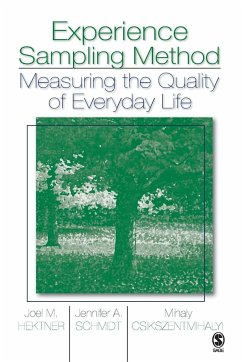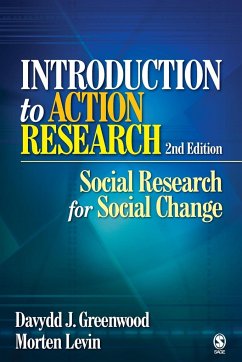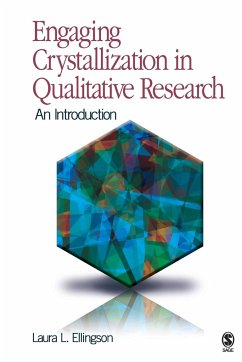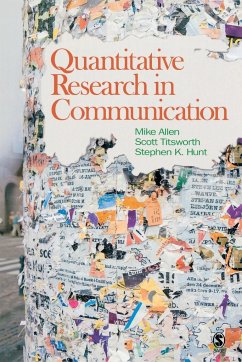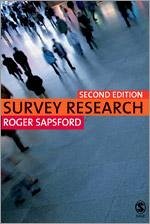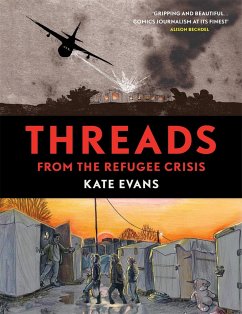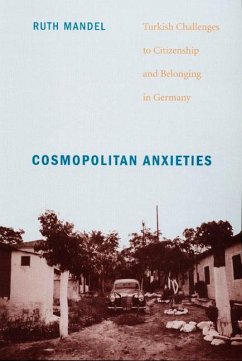
Logistic Regression
From Introductory to Advanced Concepts and Applications
Versandkostenfrei!
Versandfertig in 1-2 Wochen
176,99 €
inkl. MwSt.

PAYBACK Punkte
88 °P sammeln!
Logistic Regression is designed for readers who have a background in statistics at least up to multiple linear regression, who want to analyze dichotomous, nominal, and ordinal dependent variables cross-sectionally and longitudinally. The book begins by showing how logistic regression combines aspects of multiple linear regression and loglinear analysis to overcome problems both techniques have with the analysis of dichotomous dependent variables with continuous predictors. The logistic regression model is then examined in detail, including how to evaluate the overall model and how to evaluate...
Logistic Regression is designed for readers who have a background in statistics at least up to multiple linear regression, who want to analyze dichotomous, nominal, and ordinal dependent variables cross-sectionally and longitudinally. The book begins by showing how logistic regression combines aspects of multiple linear regression and loglinear analysis to overcome problems both techniques have with the analysis of dichotomous dependent variables with continuous predictors. The logistic regression model is then examined in detail, including how to evaluate the overall model and how to evaluate the impact of the different predictors in the model for different types of research questions. Unique to this book is the extensive consideration qualitative (prediction tables) as well as quantitative indices of how well the model predicts the dependent variable. The book then examines what can go wrong with the model and how to detect and correct it; the use of logistic regression in path analysis; nominal and ordinal dependent variables; modifications to the logistic regression model when the cases are not completely independent of one another; the use of logistic regression models for longitudinal data with few and with many repeated measurements; and alternatives to logistic regression. In each chapter, the basic model is explained and illustrated with applied examples, with a focus on translating from the research problem to the implementation of the model, then interpreting the results back to English. While not dependent on any one software package, limitations to existing software packages, and ways of getting around those limitations, are examined. The book brings together material on logistic regression that is often covered in passing or in limited detail in treatments of other topics such as event history analysis or multilevel analysis, and includes material not elsewhere available on the use of logistic regression with path analysis, linear panel models, and multilevel change models. Mathematical notation is kept to a minimum, allowing readers with more limited backgrounds in statistics to follow the presentation, but the book includes advanced topics that will be of interest to more statistically sophisticated readers as well.






